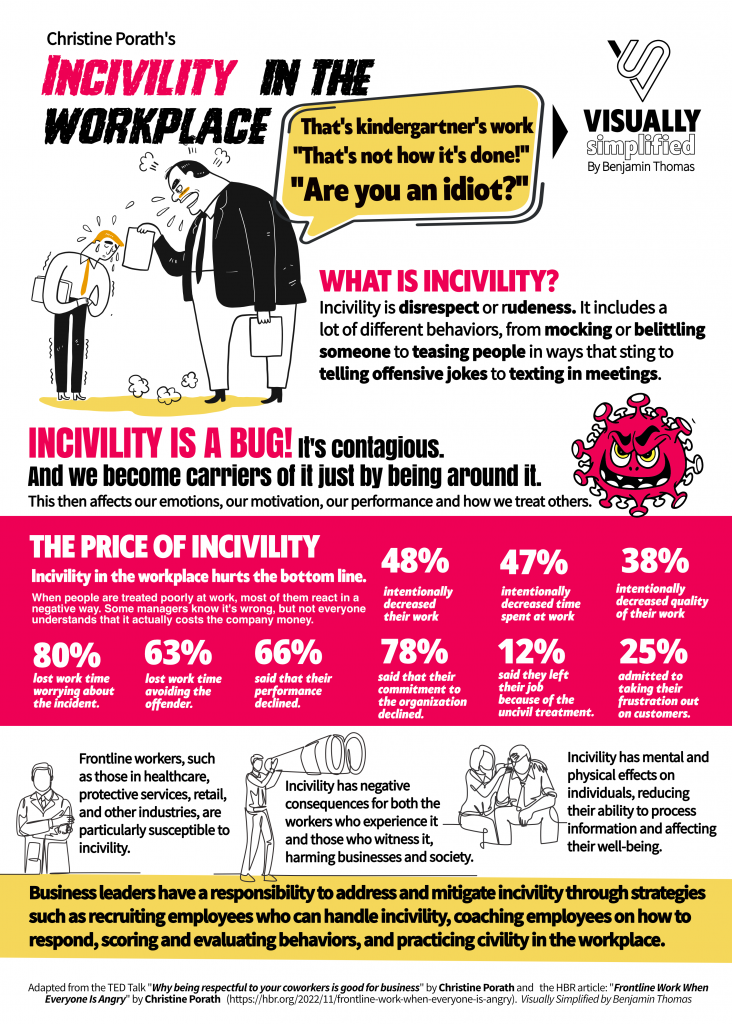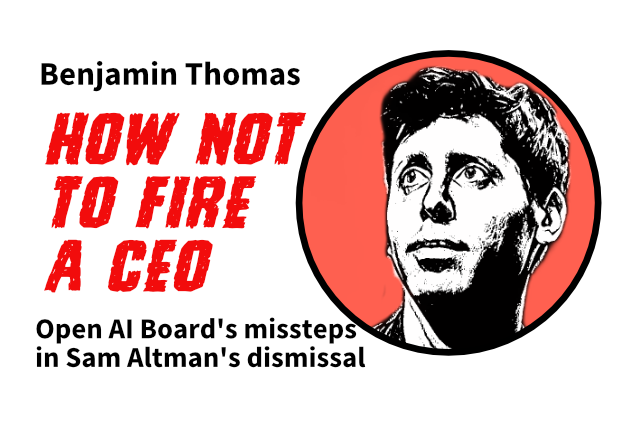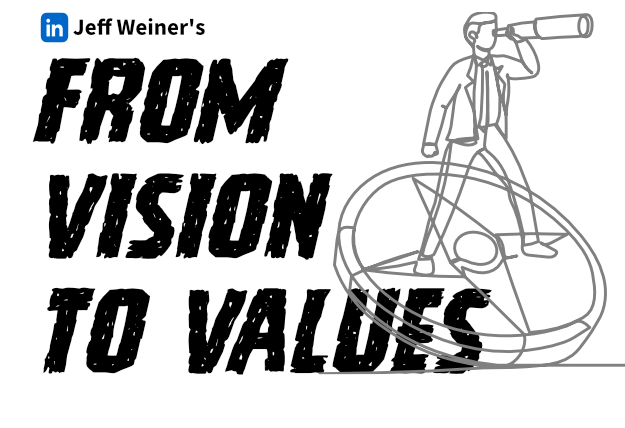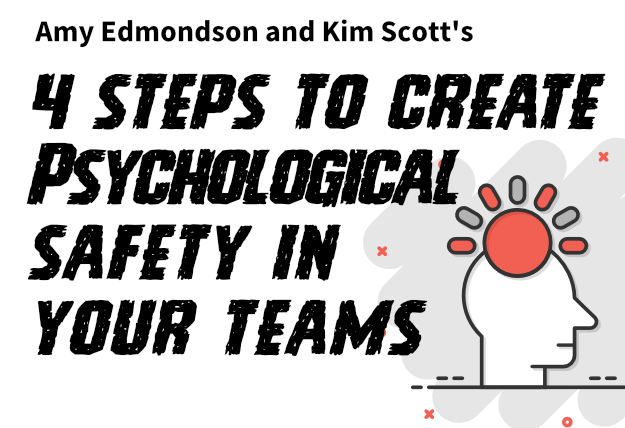Incivility in the work place

In the hustle and bustle of our daily work lives, it’s easy to overlook the importance of civility in the workplace. However, the impact of incivility can be far-reaching, affecting not just the individuals involved but the entire organization.
Drawing from the insights of Christine Porath, a leading researcher on incivility, and her enlightening TED Talk, “Why being respectful to your coworkers is good for business,” as well as her insightful HBR article, “Frontline Work When Everyone Is Angry,” we delve into the effects of incivility in the workplace.
The Human Impact
Employees are the backbone of any organization. They are not just resources but human beings who deserve to be treated with respect. When they are subjected to incivility, they may feel undervalued and disrespected. This can lead to a decrease in their motivation and productivity, and in some cases, they may choose to leave the organization altogether, impacting the company’s reputation.
The Business Impact
The effects of incivility don’t stop at the individual level. It can also have a significant impact on the business as a whole. A single act of incivility can multiply into unwanted reputations, directly affecting the business. As the saying goes, “People will forget what you said, people will forget what you did, but people will never forget how you made them feel.” This holds particularly true in the workplace, where the memory of incivility can linger long after the incident.
The Role of Leadership
Leaders and managers play a crucial role in setting the tone for workplace culture. Their actions and behaviors can significantly influence how employees behave. Like children who learn from their parents, employees often model their behavior on what they see their managers doing. Therefore, it’s essential for leaders to lead by example and promote a culture of respect and civility.
Questions to Ponder
As an organization, it’s important to regularly assess the state of your workplace culture. Here are some questions to consider:
- Do your employees feel excited to come to work every day?
- Do they feel a sense of belonging, that it’s ‘their company’?
The presence or absence of incivility in the workplace can significantly influence the answers to these questions.
Conclusion
Promoting civility in the workplace is not just about preventing negative outcomes; it’s about fostering a positive, respectful, and inclusive work environment where everyone can thrive. It’s about ensuring that every employee feels valued, respected, and heard. After all, a happy, engaged workforce is the key to a successful business.
For a deeper understanding of the subject, I highly recommend watching Christine Porath’s TED Talk and reading her HBR article.






